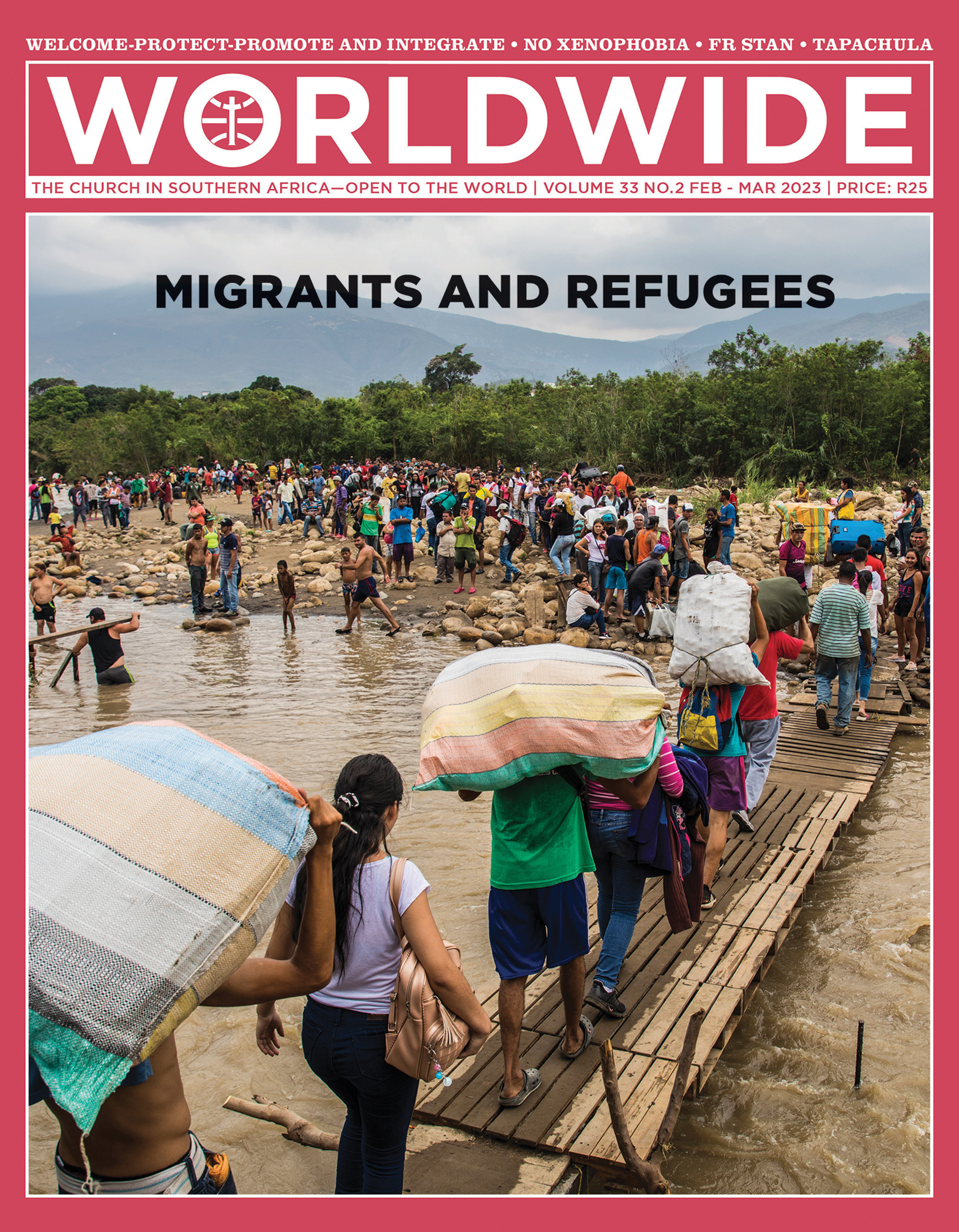
MIGRANTS AND REFUGEES
Dear subscriber
Thanks for your generous and faithful support of Worldwide and your continuous
encouragement to make it always a better magazine. We would like to
invite you to become a promoter of Worldwide subscriptions among your
family, fellow Church congregants or friends. Please find below the form with
the information needed for the new subscribers.
With sincere gratitude in advance. God bless you.
Worldwide team
FOCUS • DIOCESAN RESPONSE
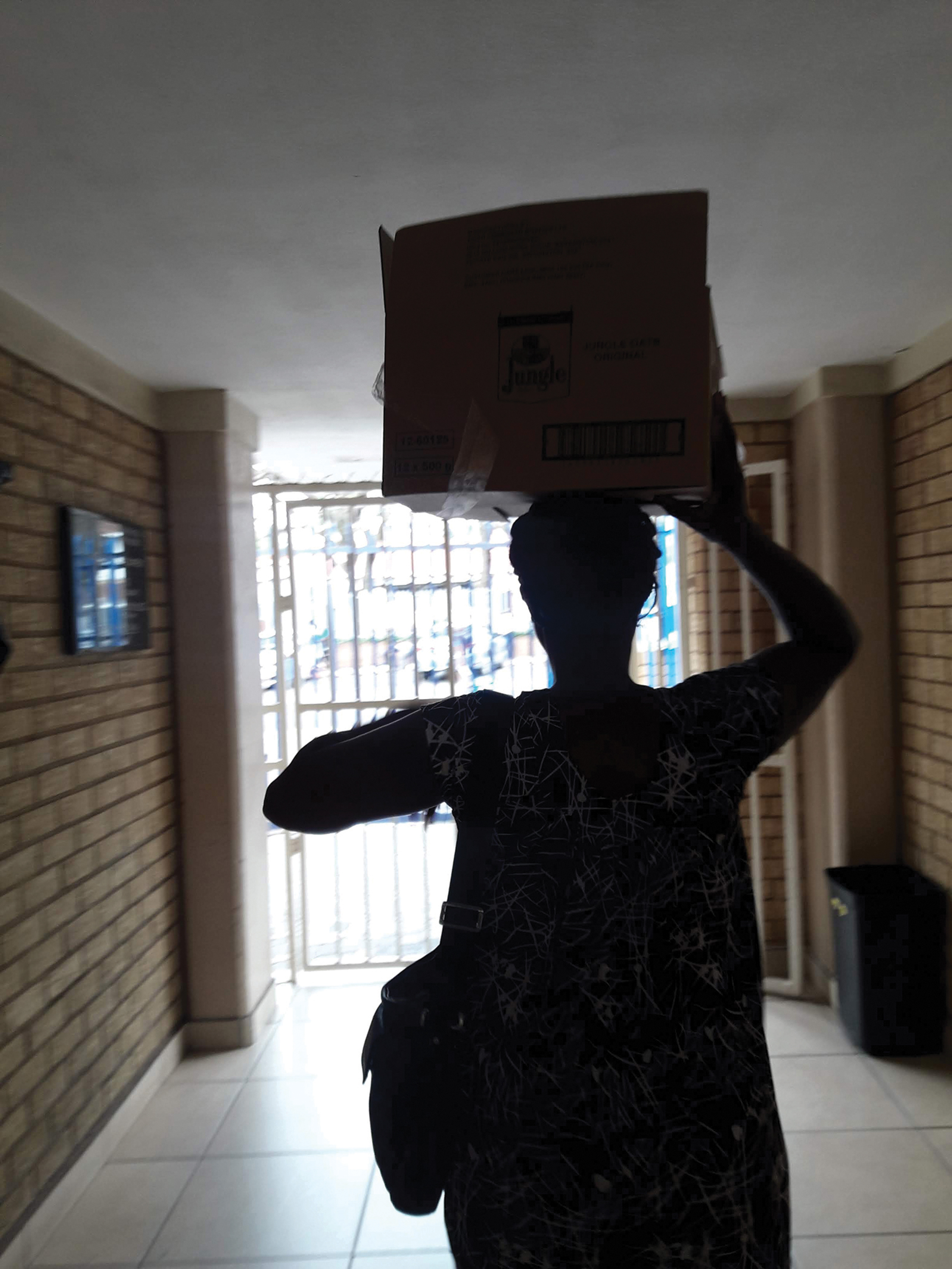
WHEN DREAMS KNOCK ON THE DOOR
The Archdiocese of Pretoria is trying to respond to the cries of migrants and refugees who come to the capital searching for peace and a dignified living. However, the reality that they often have to face at their arrival is rather the opposite
BY TEXT AND PICTURES BY SR. M. MARTA VARGAS CMS | OFICER FOR PASTORAL CARE OF MIGRANTS AND REFUGEES, PRETORIA
THIS IS a story of longing, of cries for freedom; a story made up of stories, each one of them real. It began unexpectedly in the last week of September 2022, when the Office for Pastoral Care of Migrants and Refugees of the Archdiocese of Pretoria was established. Since it was the first week, we did not expect a large turnout, but shockingly in the first three days, over 500 people lined up at the door.
Encountering reality
Truly, we were taken by surprise; we had not announced the Office’s opening
because, as it is often said, in the beginning, it is better to go slowly but this was definitely not the case. Looking back, I see it all as a sign from heaven: a clear indication of the migration crisis that the country is going through, or rather, of the crisis that migrants are going through in the country and that we, as Church and society, have to take on board.
I ask myself, how did this happen, how did so many people arrive in such a short time and without previous notice but the real question is why? Why do hundreds of people line up under the sun looking for a place of help and comfort? Why do they stay and wait, even when there are no promises?
Due to situations such as unemployment, xenophobia and precarious living conditions, despair might be the first response, but that is only part of the reality. The truth is that beyond their needs, lie dreams and longings for happiness. Migrants and refugees knock at the door because they are not tired of dreaming. When dreams come and knock at the door, who can deny them their way, or ignore them?
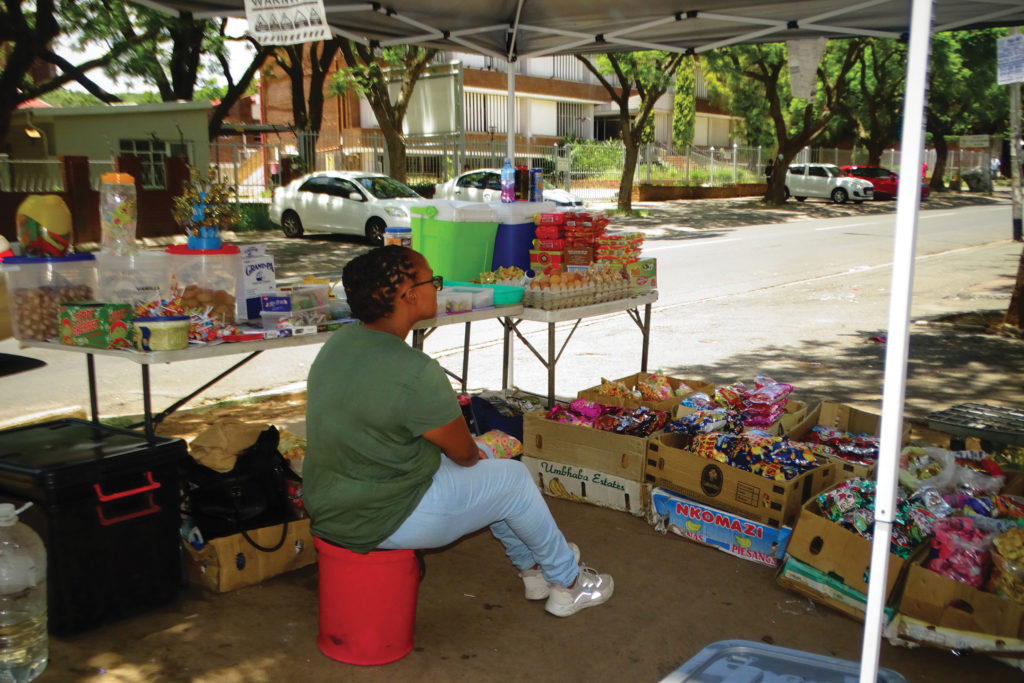
Faces of migrants
It is impossible to forget them, much less when they have concrete faces—in my case, the faces of migrant and refugee brothers and sisters who have visited the Office in recent months.
For example, the mother and widow who escaped with her children from an attack on her village; who lost everything but the strength to fight; and so today she dreams, she dreams of living in peace, as a family, raising her children without hearing them cry. Or the face of the young girl who wants to study and who suffers seeing her parents going out to look for work every day because, like any good father or mother, they just want to see their children progress in life.
How can I forget the pregnant woman with belly pains, unable to pay the high fee demanded at the hospital to be treated? I can still see the fear on her face for what might happen to her baby. I remember the anguished expression of her husband, dismissed from his job even with valid documents, worried about her and the future of their children.
It is the same expression of the mother of a 13-year-old girl with a terminal illness, without a roof over her head and suffering because they do not want to treat her daughter either in the clinic or in the hospital.
The office intends to be a source of light where migrants and refugees can experience God’s care and guidance
It is impossible not to be distressed when a family waits for years for their documents to be approved and, suddenly, one or two decades later these are denied and they are forced to return to a war reality from which they had initially escaped.
I could go on listing cases: unemployed people with sick people at home (or homeless) and children with disabilities; elderly people in vulnerable conditions; victims of abuse, attacks and robberies which have gone unpunished; people persecuted or under constant threat; people who want to work—people who, in the end, want nothing more than a normal life.
I know that not everyone is perfect; there are also criminal or fraudulent cases, but one cannot generalise and much less label them. Perhaps this is the most beautiful lesson from the whole process: migrants and refugees are first and foremost people, human beings who have the right to dream of a life in peace, a stable home and simple wellbeing, leaving behind the traumas of the past, with a possibility of starting over.
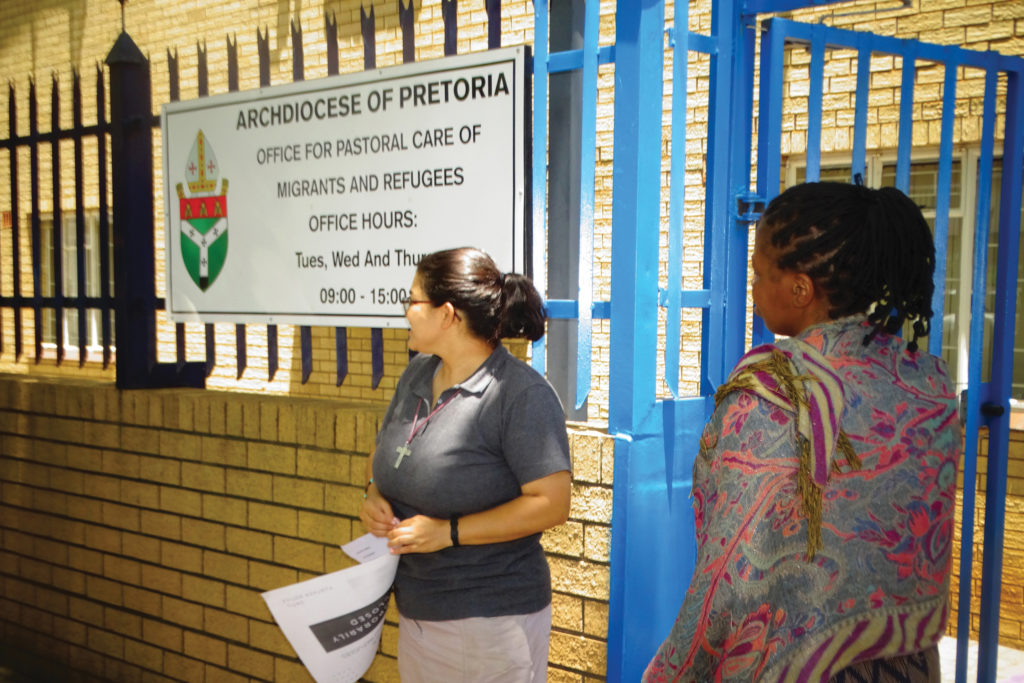
Right to dream
When we dare to look further, we discover that we are not talking about impossibilities, but about dreams of humanity. However, it seems that labels have won and we have given more power to borders and nationalities than to solidarity.
Listening and sharing with migrants, not only in South Africa but also in Mexico and Egypt, I have seen the great labyrinth of limits and walls that we have built as a society. Walls of refusals and rejections such as the ones I hear every day: ‘Sister, they don’t give us documents, we can’t work, they don’t take care of us at the clinic, we can’t study, we can’t afford food or rent, let alone medicine or anything else, we are not safe here, we have no peace’.
It is in this context that the Office for Migrants began. On Sunday 25 September 2022, coinciding with the occasion of the World Day for Migrants and Refugees (WDMR), this Office was blessed and inaugurated during a Eucharist presided over by the Vicar General Fr Amos Masemola.
This experience reminds me of the importance of joining forces as Church and society
Joining the Universal Church’s desire to accompany our brothers and sisters, we opened the doors on the 27th of the same month. The office, located in St Martin de Porres Parish in SunnySide, echoes Pope Francis’ invitation for the WDMR, to “build the future together with migrants and refugees”.
Promoted by Archbishop Dabula Anthony Mpako, it responds to the Church’s pastoral mission of caring for those who suffer most, those in vulnerable conditions. As a local Catholic Church, in the Archdiocese of Pretoria, the office intends to be a source of light where migrants and refugees can experience God’s care and guidance.
However, as we look around, we may be desolate: the reality overwhelms us and there is very little we can contribute but, in discovering our limited humanity, we remember where the light and salvation really come from: ‘In Him was life, and that life was the light of humankind. The light shines in the darkness, and the darkness has not overcome it’ (Jn 1: 4, 5).
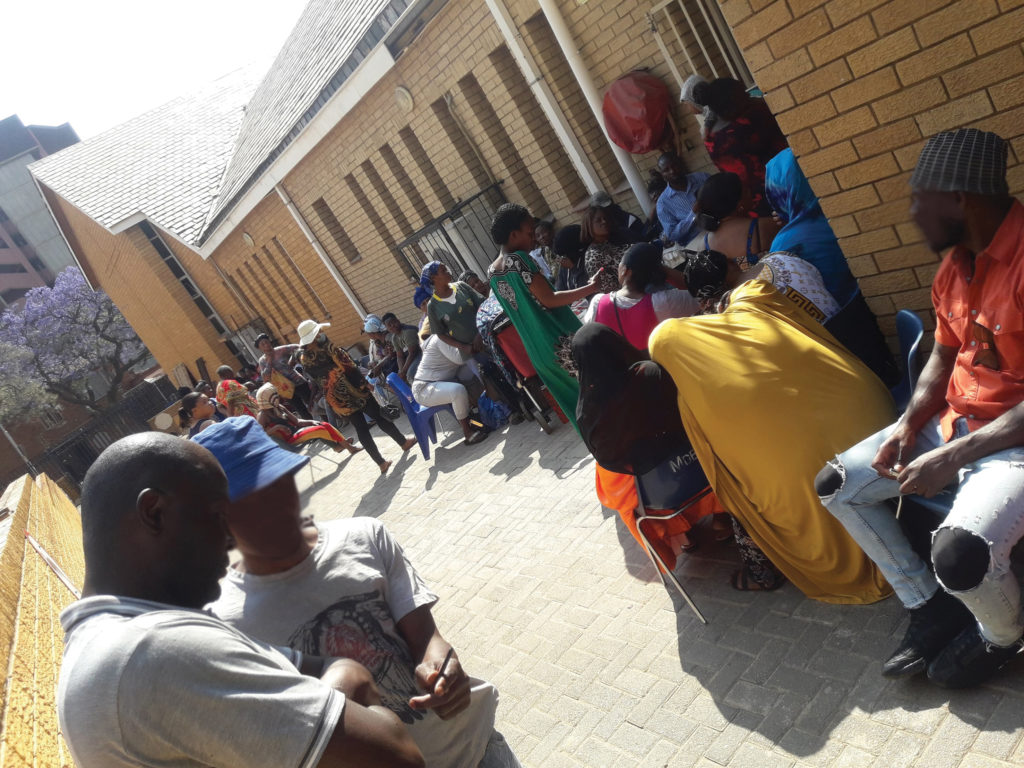
Faith and community
Our limitation helps us to turn our gaze to the pierced Heart of Jesus who, as St Daniel Comboni said, beat on the Cross for all humanity. In Comboni’s time, this meant that Jesus saves, regardless of race and colour, in our time we have to add that His heart beats for all, regardless of their nationality.
Looking at the Cross and the Mystery of Nativity which we celebrated a few weeks ago, we regain hope. The Office is not the solution to all problems, but rather a Bethlehem to welcome those who suffer rejection, a place of comfort and understanding, a shoulder to lean on in situations of frustration and, when possible, a guide or contribution towards a solution.
Above all, it is a voice which calls to build more human and Christian communities, as Jesus dreamed them to be. At the same time, it is a bridge, a place of union with other people committed to the common good. In these first months, I have met many people and come to know many organisations of good heart and goodwill: Catholics and people from other denominations who offer their lives, their time and their work to support our migrant and refugee brothers and sisters in the different areas where there is need for healthcare, legal assistance, basic needs, education, among others.
This experience reminds me of the importance of joining forces as Church and society. We have already started to work in direct collaboration with Caritas, as well as with other organisations. The road is still long and complex, we need everyone to build a future without exclusion and marginalisation, not only for migrants and refugees but for all of us who live together in this land which we call home.
After this first period of opening, I think the invitation to all is clear and concise: it is time to build together the dreams of humanity, it is time to open the doors and let dreams come in.
| Dates To Remember |
|
February 1 – Blessed Benedict Daswa 2 – World Wetlands Day 4 – International Day of Human Fraternity 6 – International Day of Zero Tolerance to Female Genital Mutilation 8 – International Day of Prayer and Awareness Against Human Trafficking 11 – World Day of the Sick 11 – International Day of Women and Girls in Science 13 – World Radio Day 20 – World Day of Social Justice 21 – International Mother Language Day 22 – Ash Wednesday March 1 – Zero Discrimination Day 3 – World Wildlife Day 5 – International Day for Disarmament and Non-Proliferation Awareness 8 – International Women’s Day 15 – International Day to Combat Islamophobia 20 – International Day of Happiness 20 – St Joseph, Husband of Mary 21 – Human Rights Day 21 – World Down’s Syndrome Day 22 – World Water Day 24 – World Tuberculosis Day 25 – International Day of Remembrance of the Victims of Slavery and the Transatlantic Slave Trade |
